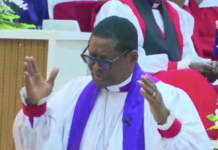In the past I have been in the same camp as the Archbishop of Canterbury on assisted dying even though we both know that Christian teaching is not always crystal clear on medical ethics.
My change of heart came about when I came across the suffering of people like Tony Nicklinson, who died shortly after a court refused his application to die with a doctor’s help.
This was in 2012, and I read widely and consulted pain specialists and indeed theologians before I felt able to support some of the attempts to change the law in Parliament.
It has been depressing to find myself in opposition to the combined might of the Bishops. But I know that I am not in a minority among churchgoers.
There are many Christians who, like me, believe that sometimes the distress of those at the end of life needs to be met with compassion which in the most intractable cases might include assistance to die.
And in the debate that lies ahead, none of the Bishops will point to a Bible passage that straightforwardly addresses assisted dying.
The problem of pain at the end of a life prolonged by modern medicine is simply not addressed in the good book.
The argument will be based primarily on two fears. Firstly, that this is a slippery slope whereby assisted dying will lead to voluntary euthanasia. Secondly, that some relatives will coerce vulnerable people.
It is surely not beyond the gifts of Parliamentarians to write a law which will protect against both possibilities?
I hope and pray that church leaders will listen to the experience of those who are dying in terrible pain and begging for help to ease their passing.
It is true that palliative care has made great strides but this law will make a real difference to those whose agony at the end is too great even for modern medicine to alleviate.



